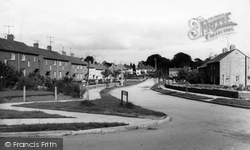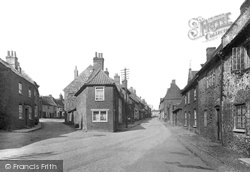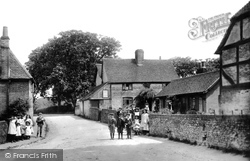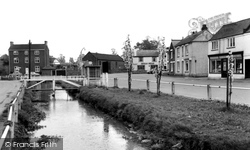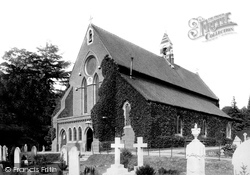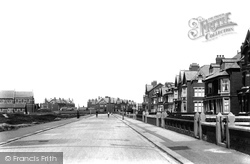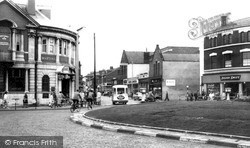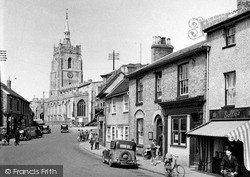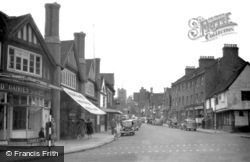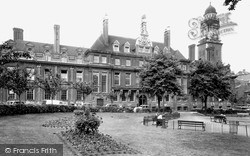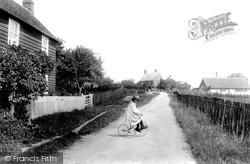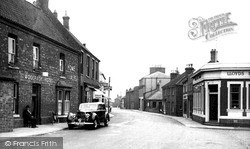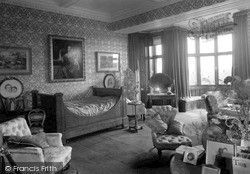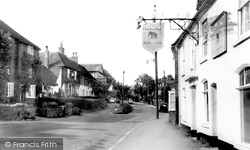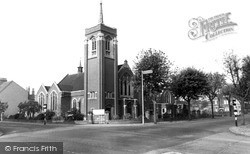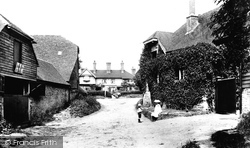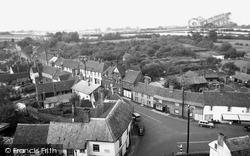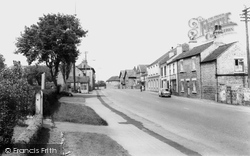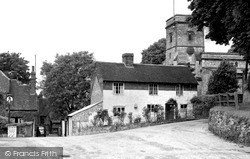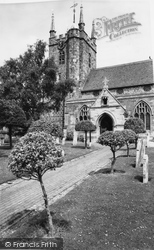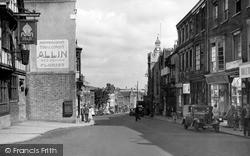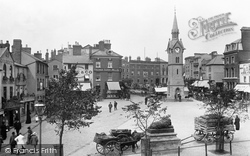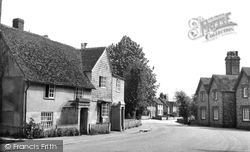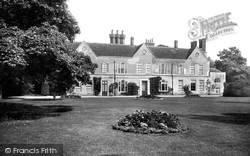Places
Sorry, no places were found that related to your search.
Photos
Sorry, no photos were found that related to your search.
Maps
Sorry, no maps were found that related to your search.
Books
Sorry, no books were found that related to your search.
Memories
655 memories found. Showing results 131 to 140.
Daresbury Firs And Other Memories
Brought up in the Square I have happy memories of playing in Daresbury Firs. The blue bells were always marvellous in the spring! I used to help my stepdad (Roy Forster) collect leaf mould for his vegetable ...Read more
A memory of Daresbury Firs by
Darvel Down
We were among the first half dozen families to move onto Darvel Down back in 1949, I think. We originally occupied No.43 which was one of the handful of finished houses and in those days the estate was a builders dump. ...Read more
A memory of Netherfield in 1949 by
Dersingham 1954 C
We lived in the village shop Virginia Stores owned by Peatling & Cawdron. My dad won the Vernons Football Pools in 1955 - a great sum of £505.6s - my sister and I had new bikes and Mum and Dad went for a holiday to ...Read more
A memory of Dersingham by
Devizes Memories
A DEVIZES GIRL REMEMBERS Before talking of my own memories, it would seem appropriate to start by sharing some valuable ones of my Father who was born in 1906 and spent his whole life in the town. During the last five years of his ...Read more
A memory of Devizes by
Devonshire Street
I was born at no 10 Devonshire Street and remember the row of terraced houses and tiny cramped back streets, and loads of alleys and gennels where we played hide and seek. I was about 4 when Sheffield was bombed and remember ...Read more
A memory of Chesterfield in 1940 by
Doon The Den
I stayed in Denhead and used to play down the den almost every day. We used to go to school via the gap either next to Ciff Bells house or the gap next to smiths shop. We used to go along the cliffs behind the scrappiest then straight ...Read more
A memory of Kennoway by
Dorstone In The Golden Valley
In many parts of the world the countryside is largely unclaimed, untamed, even uninhabited; consider, say, the large swathes of Australia’s Kimberley region, Indonesia’s Kalimantan, or the interior of Baffin Island. ...Read more
A memory of Dorstone in 1940 by
Downshall Secondary School
I have very fond memories of Downshall Secondary where I was between 1958 and 1962. I used to live in Downshall Avenue, and we used to walk everywhere, to school, to Seven Kings Park and the park up Meads Lane. We ...Read more
A memory of Seven Kings in 1960 by
Drayton St Leonards 1936
1936 - my father Ernest Eldridge and mother Violet and myself Barbara moved from Dorchester on Thames to Drayton St Leonards. My mother's friend May Rusher (wife of Frank Rusher) arranged for the cottage next ...Read more
A memory of Drayton St Leonard in 1930 by
Duffers
We are in year 1955 and I'm sure you older ones from around here will remember what Duffers were, this was a task game where all the gang joined in. We had different modes which would take our fancy, pole vaulting was where we would cut a ...Read more
A memory of Newburn in 1955 by
Captions
405 captions found. Showing results 313 to 336.
Looking down New Street to the Moot Hall, we can see on the right a brick Georgian house where many BBC trainees lodged in the 1960s.
The long straight high street eventually opens up into the Friday market place.
Fifteen children have been neatly assembled by the photographer in front of the brick and half-timbered cottages that comprised this small village – it was originally called Clandon Abbots.
The brook here somehow appears to be little cared for, with its chipped concrete posts arrayed along weedy banks.
This modest building of red brick is attributed to T H Rushworth and was built in about 1864. The windows are 13th-century and show a variety of designs in two-bay arcades.
The buildings were all good quality brick with stone cappings and gate posts.
The roundabout was removed in 1979 to make way for a new road junction.
On the right, the Royal Oak, the shop with the arched door and window, and the building nearest the camera, here Dolly's sweet shop, all remain.
This photograph was taken from the junction of the High Street with Bridge Street. The dominant buildings are of the early 1900s, complete with a fine set of chimney stacks.
The early 19th century saw Leicester in an appalling sanitary condition, until piped water came to the town in the mid 1850s, along with its first sewers.
Lying just to the north of Chilham is this small and curiously named hamlet where, until the beginning of the 20th century, an annual race was staged between two village youths and two maidens for a
North from the Market Place, the High Street curves away past The Woolpack, now rendered and roughcast.
This plainer room is one occupied by Queen Victoria when she stayed at Thoresby, enjoying the lavish hospitality of Earl Manvers.
The pretty village of Elham, at the heart of the valley of that name, is clustered around its market square and this High Street, lined with buildings from several periods.
Churches were built to serve the suburbs north of Abington Park.
The pretty village of Shackleford, west of Godalming, has a mixture of houses in different styles, as evidenced here by the creeper-clad building on the right, the tall-chimneyed cottages with their neatly
Bridge House, the Post Office Stores and the adjoining houses (centre bottom) follow the curve of the street, named after The Swan Inn.
Two miles south of Langold, Carlton in Lindrick is a village of two parts, the original village to the south and a large former colliery village with hard red brick semi-detached houses.
Oving, west of Whitchurch, lies off the main road, and is a very pretty village on the Portland limestone ridge.
Another view, similar to H6031 (above), shows the brick-paved path and the holly bushes. At the left is a silver birch, which also survives today.
The contraption on the brick wall of Allin's Newsagents beside the pub is a vending machine.
Beyond the Clocktower, the Georgian brick front belongs to the George Inn, which was replaced by Burtons in 1936.
Glynde is most famous for its internationaly renowned opera house built in the grounds of Glyndbourne.
West of the church and across a stream is The Bury, the manor house until 1741. At one time council offices, it is now divided into houses and its grounds are a public open space.
Places (0)
Photos (0)
Memories (655)
Books (0)
Maps (0)


